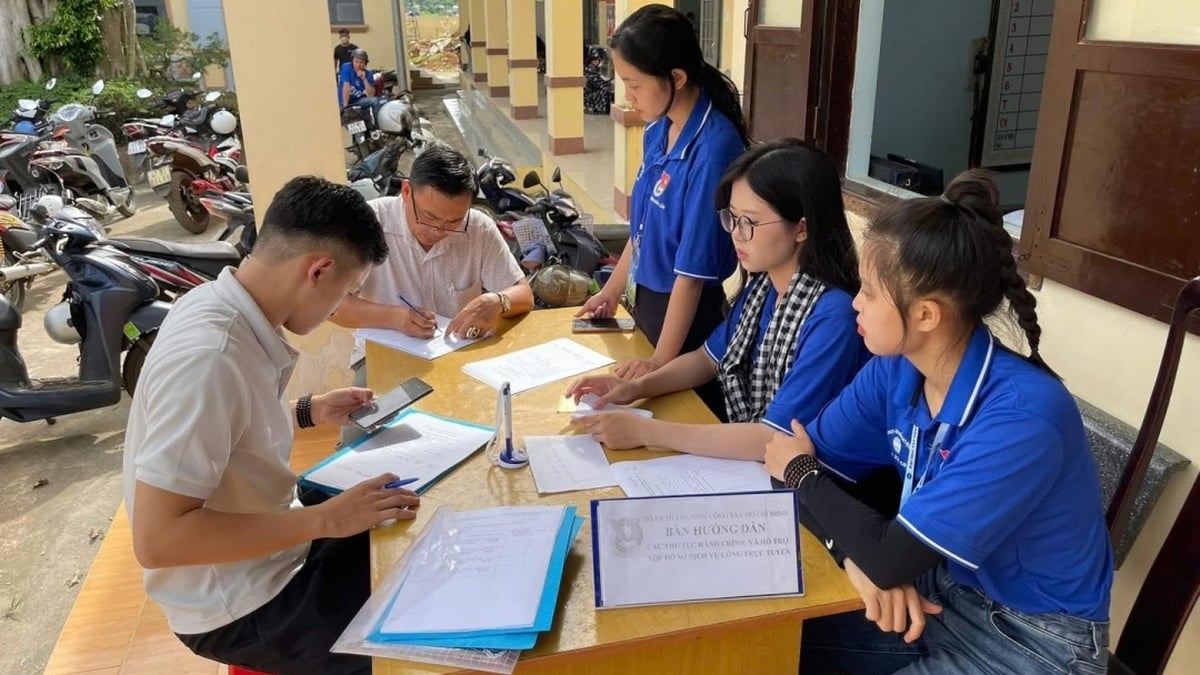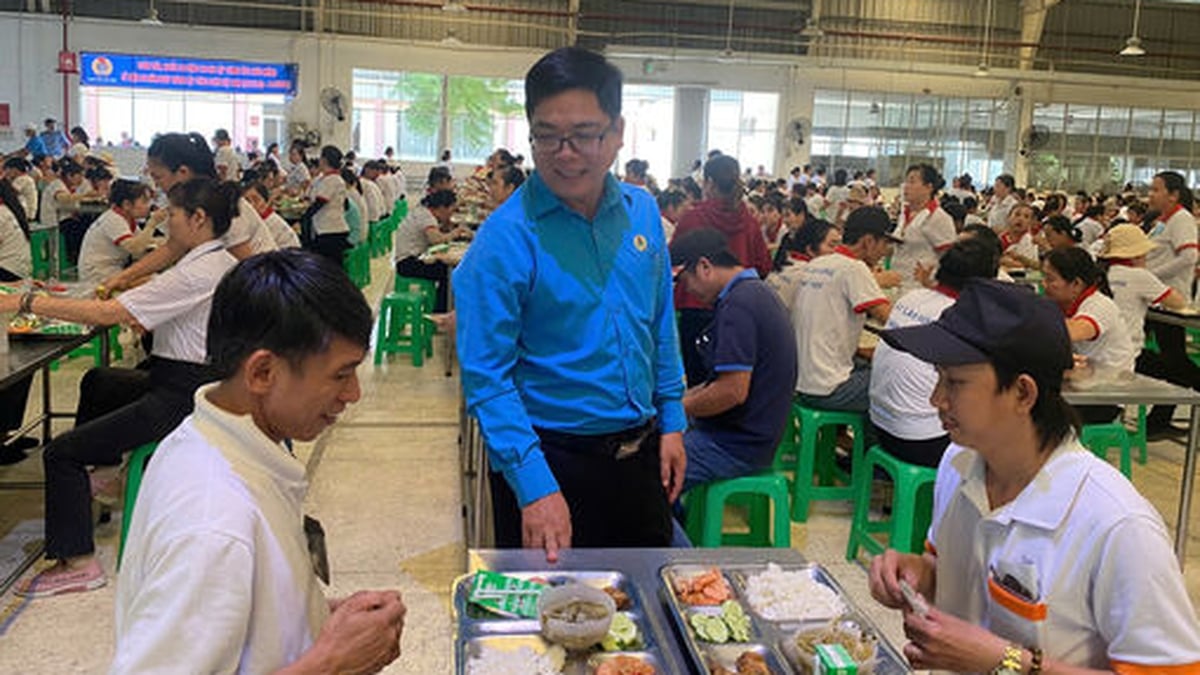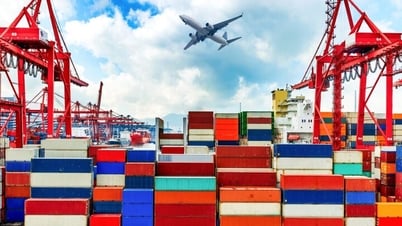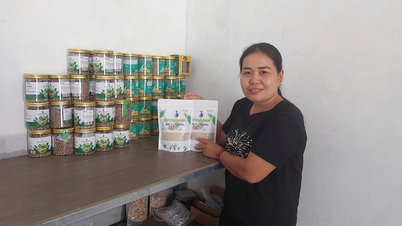Thus, it can be said that the risk of abnormal increase and strong inflation in the coming months is not too high. However, controlling inflation is always the top priority to stabilize the macro economy and ensure social security, so careful analysis and appropriate management solutions are needed.

Inflation under control
Factors that increased the CPI in the first quarter of 2025 compared to the same period last year include: The price index of the food and catering services group increased by 3.78%, causing the overall CPI to increase by 1.27 percentage points. The price index of the housing, electricity, water, fuel and construction materials group increased by 5.11% (mainly due to the increase in prices of materials such as cement, iron, steel, sand and house rents), causing the overall CPI to increase by 0.96 percentage points. The price index of the medicine and medical services group increased by 14.4%, causing the overall CPI to increase by 0.78 percentage points, and the price index of the culture, entertainment and tourism group increased by 2.16%, causing the overall CPI to increase by 0.1 percentage points.
According to the General Statistics Office (Ministry of Finance), in the context of complex and unstable international market developments affecting supply and demand of goods, Vietnam's inflation is controlled at an appropriate level to support economic growth.
The General Statistics Office also assessed that the proactive, drastic and close solutions of the Government, ministries, sectors and localities to remove difficulties, promote growth, maintain macroeconomic stability and control inflation have been effective. The supply, circulation and distribution of goods and services have been ensured smoothly. The lending interest rate level has continued to be reduced, coupled with the design of preferential credit packages to support each priority sector and area, while the foreign exchange market has been kept stable, contributing to reducing input costs of production and business activities.
Disbursement of public investment capital continues to be strongly promoted, with a series of large infrastructure projects reaching the finish line on schedule... In particular, the supply and demand developments and market prices of essential goods are closely monitored and appropriate management measures are taken. As a result, the prices of goods and services in the market generally do not fluctuate abnormally, maintaining inflation under control.
New situation and response solutions
However, the situation has had an unexpected and very disadvantageous element when the United States decided to impose high reciprocal taxes on imported goods from many countries, including Vietnam.
There are currently two ways to assess and determine the impact of the US imposition of reciprocal tariffs on domestic inflation. First, it is predicted that inflationary pressure will likely decrease significantly, as the trade war between the US and major partners such as China, the European Union (EU), Japan, Canada, etc. could push the world economy into recession, causing demand to decrease. Once purchasing power decreases on a large scale, a tightening spending mentality will appear, aggregate demand will weaken and create a restraining effect on price increases, i.e. reducing inflationary pressure.
On the other hand, most opinions say that inflation is under increasing pressure as the US imposes reciprocal tariffs not only on Vietnam but also on many countries around the world. The increase in the value of the USD further increases the cost of importing raw materials, fuels and materials, putting pressure on the domestic price level of goods.
In a general assessment, Head of the Service and Price Statistics Department (General Statistics Office) Nguyen Thu Oanh commented that trade competition between major countries is becoming increasingly fierce, especially the US tariff policy which can affect long-term inflation when global trade partners take "retaliatory" actions. Vietnam is a country that imports many raw materials for production, so high world commodity prices will affect costs and prices; create pressure on business production and thereby push up domestic consumer goods prices.
The General Statistics Office believes that the authorities need to continue to closely monitor the developments in prices and inflation in the world, promptly warn of risks affecting prices and inflation in Vietnam to take appropriate response measures to ensure supply and stabilize domestic prices. At the same time, ensure smooth supply, circulation and distribution of goods and services, especially strategic goods that are likely to be affected by disruptions in the global supply chain and geopolitical conflicts and tensions. In addition, industries need to promote more and faster investment for the goal of self-sufficiency in raw materials and accessories to replace imports, towards higher value chains.
Experts also recommend continuing to promote and develop the effectiveness of the growth engine based on exports, so export production enterprises need to have solutions to cut costs, improve the competitiveness of goods, and at the same time seek and diversify markets. To satisfy the demand for imported raw materials for domestic production, enterprises should closely follow international market developments, take advantage of signing contracts at a time when prices are "soft" to limit the impact, have conditions to reduce the selling price of final products, contributing to curbing inflation.
According to economist Nguyen Bich Lam, the Government needs to be flexible and promptly implement trade defense measures while finding solutions to reduce the trade deficit between the United States and Vietnam, thereby contributing to controlling inflation. This is also a way to increase the effectiveness of negotiations and reduce tariffs on Vietnamese exports.
Source: https://hanoimoi.vn/linh-hoat-dieu-hanh-de-kiem-soat-lam-phat-699667.html




































































































Comment (0)